The Black Cap protest: Drag queens and LGBT activists gather to save iconic London gay bar from developers
'The Cap was more than just a bar and club, it was a home and community hub for many people'
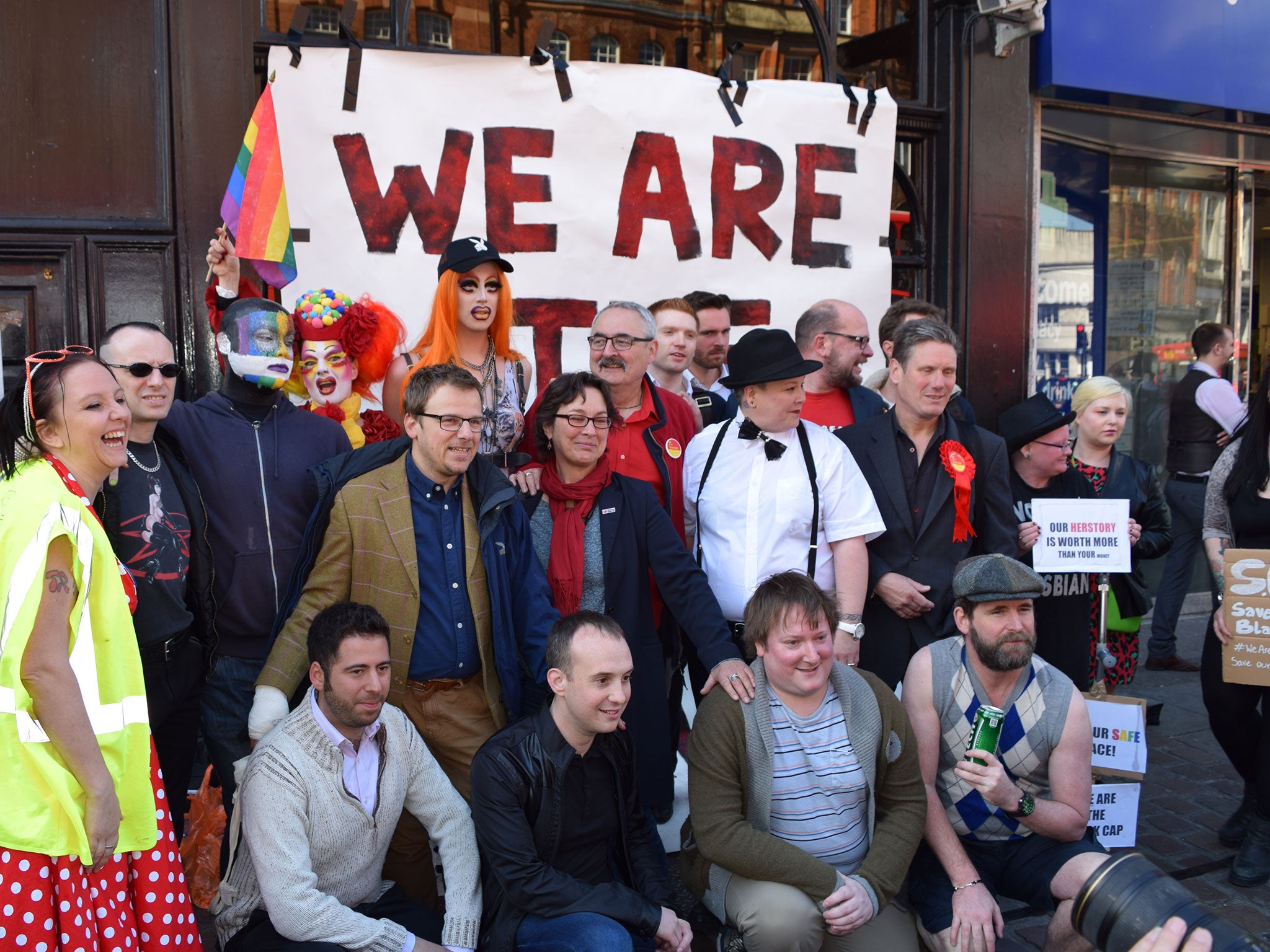
Your support helps us to tell the story
From reproductive rights to climate change to Big Tech, The Independent is on the ground when the story is developing. Whether it's investigating the financials of Elon Musk's pro-Trump PAC or producing our latest documentary, 'The A Word', which shines a light on the American women fighting for reproductive rights, we know how important it is to parse out the facts from the messaging.
At such a critical moment in US history, we need reporters on the ground. Your donation allows us to keep sending journalists to speak to both sides of the story.
The Independent is trusted by Americans across the entire political spectrum. And unlike many other quality news outlets, we choose not to lock Americans out of our reporting and analysis with paywalls. We believe quality journalism should be available to everyone, paid for by those who can afford it.
Your support makes all the difference.Drag queens, activists, patrons and passers-by have gathered outside London’s iconic gay bar The Black Cap to protest its recent closure. It was an affair as vibrant and fabulous as the cabaret performances Camden's ‘Palladium of Drag’ was famed for hosting.
Speakers at the demonstration included drag queens Titti La Camp and Meth, who had both previously performed at the venue; Nigel Harris, Director of Camden LGBT Forum and Ben Walters, a member of the RVT Future campaign, which hopes to protect the Royal Vauxhall Tavern from closure.
Despite the great sense of injustice felt by the loss of the pub, the crowd of over one hundred people was still in good spirits, cheering on the drag acts, regularly chanting "We Are The Black Cap" (the event’s name on Facebook) and booing at any mention of the new owners, or anyone associated with its closure.
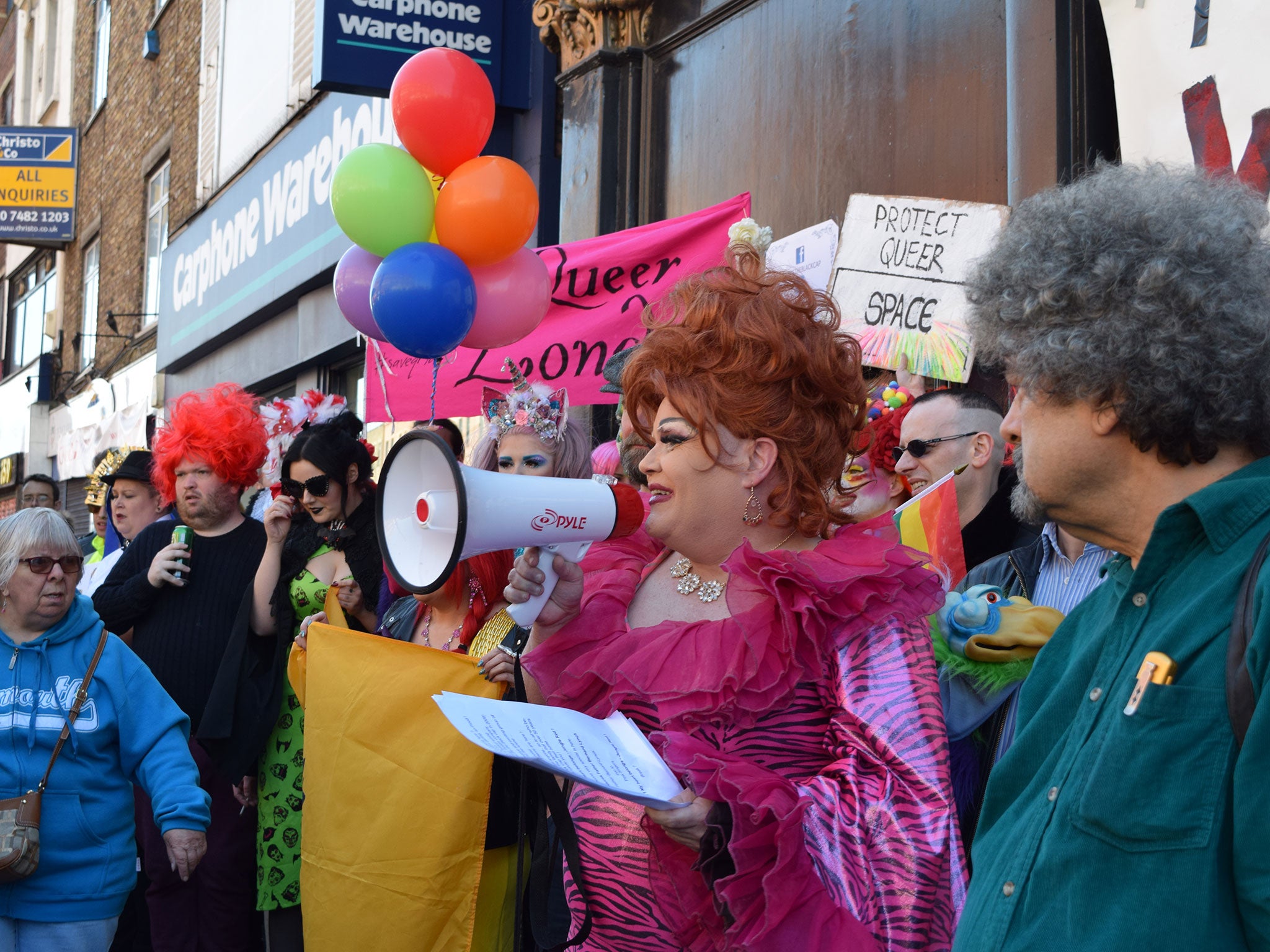
The Black Cap closed its doors for the final time on Monday without warning. The venue is in the process of being sold and protesters fear the new owners will push forward with plans to redevelop the first floor bar into flats and the ground floor into retail space.
"We are trying to save The Black Cap and we want those who have bought the venue - whoever they may be - to know that we are still here and that we won't just sit back and let this happen," says Joe Parslow, one of the demonstration’s organisers.
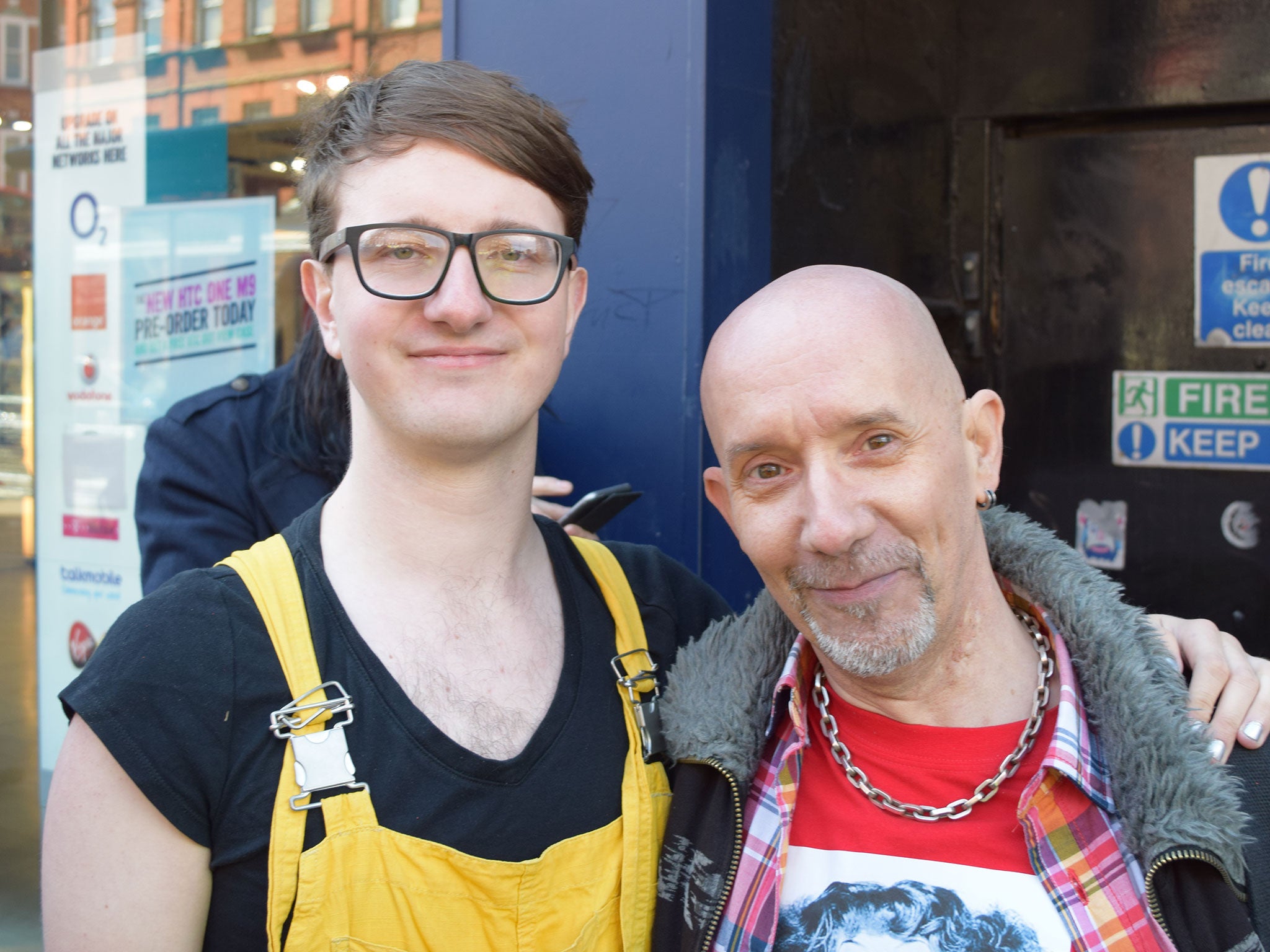
"It’s about remaining visible and demonstrating that the Cap was more than just a bar and club, it was a home and community hub for many people. Its place in the annals of drag and queer history is unquestionable and its loss to the regular community who attend the venue both day and night will be profound."
The Black Cap’s closure brings to an end a history that spanned half a century. It had been operating as an LGBT venue since the mid-1960s, when homosexuality was still illegal, and was viewed as a safe space by many. It now joins London’s ever-growing list of ill-fated queer venues, one which includes Candy Bar, The Joiners Arms and Madame Jojo’s.
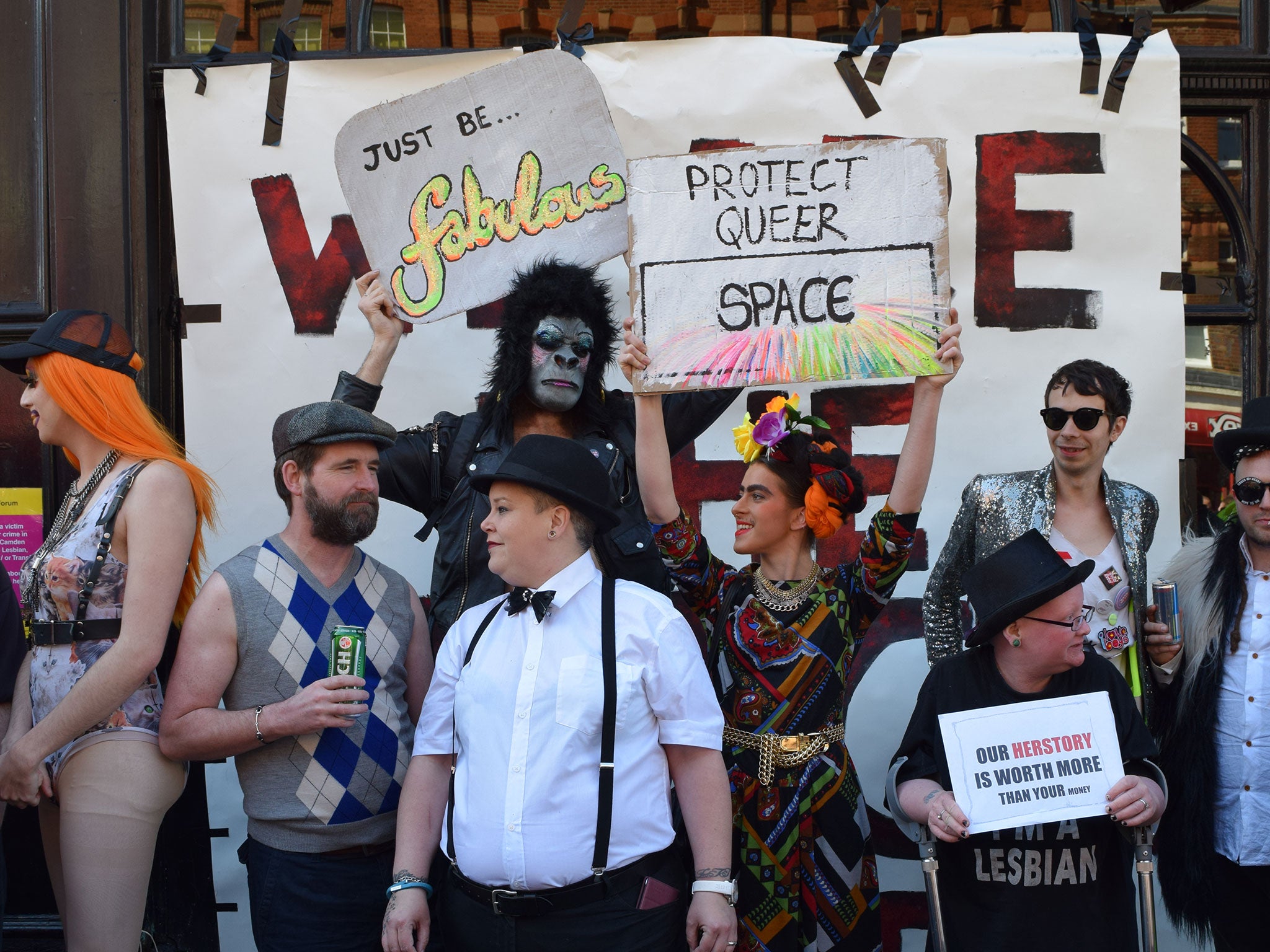
"Its closure feels like an absolute social injustice," says Zack Polanski, one of the many regulars. "I first started going to the Black Cap when I moved to Camden ten years ago. I was from Manchester and when I visited Soho, I felt like everyone knew their place. The Black Cap was defined largely by the fact you lived in north London. As a result, I was befriending lots of characters older and younger than me that I might not otherwise have come into regular contact."
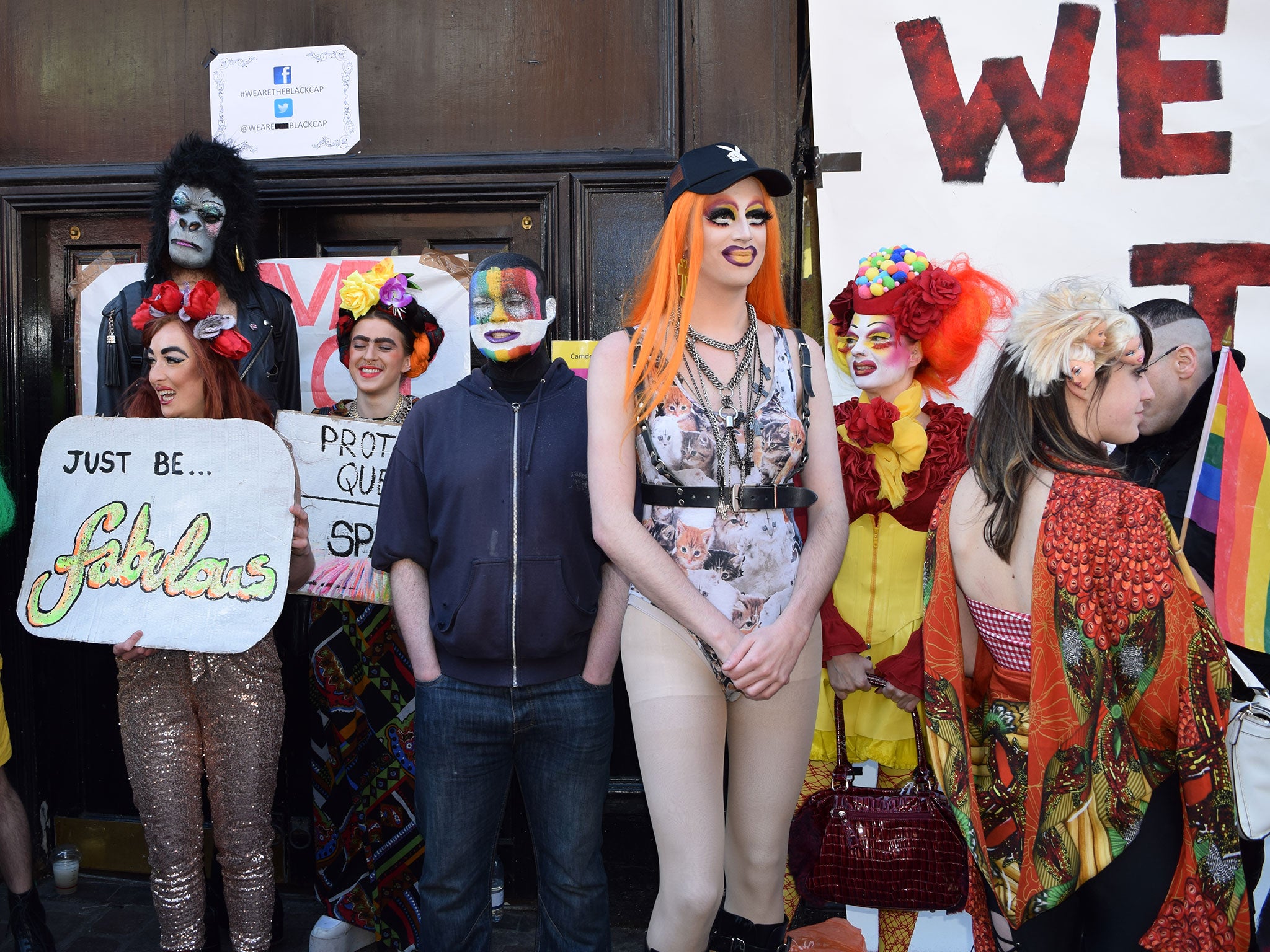
"I feel like it's an attack on the local community and isn't just a gay issue but a much larger problem of gentrification and a bigger question about what kind of city do we want London to be?"
Prior to the pub’s abrupt closure, Faucet Inn (which operated The Black Cap on behalf of the freeholder), sought permission to convert the first floor bar into flats. The application was rejected by Camden Council, with one councillor on the committee stating the plans would ultimately have led to the venue’s death entirely.
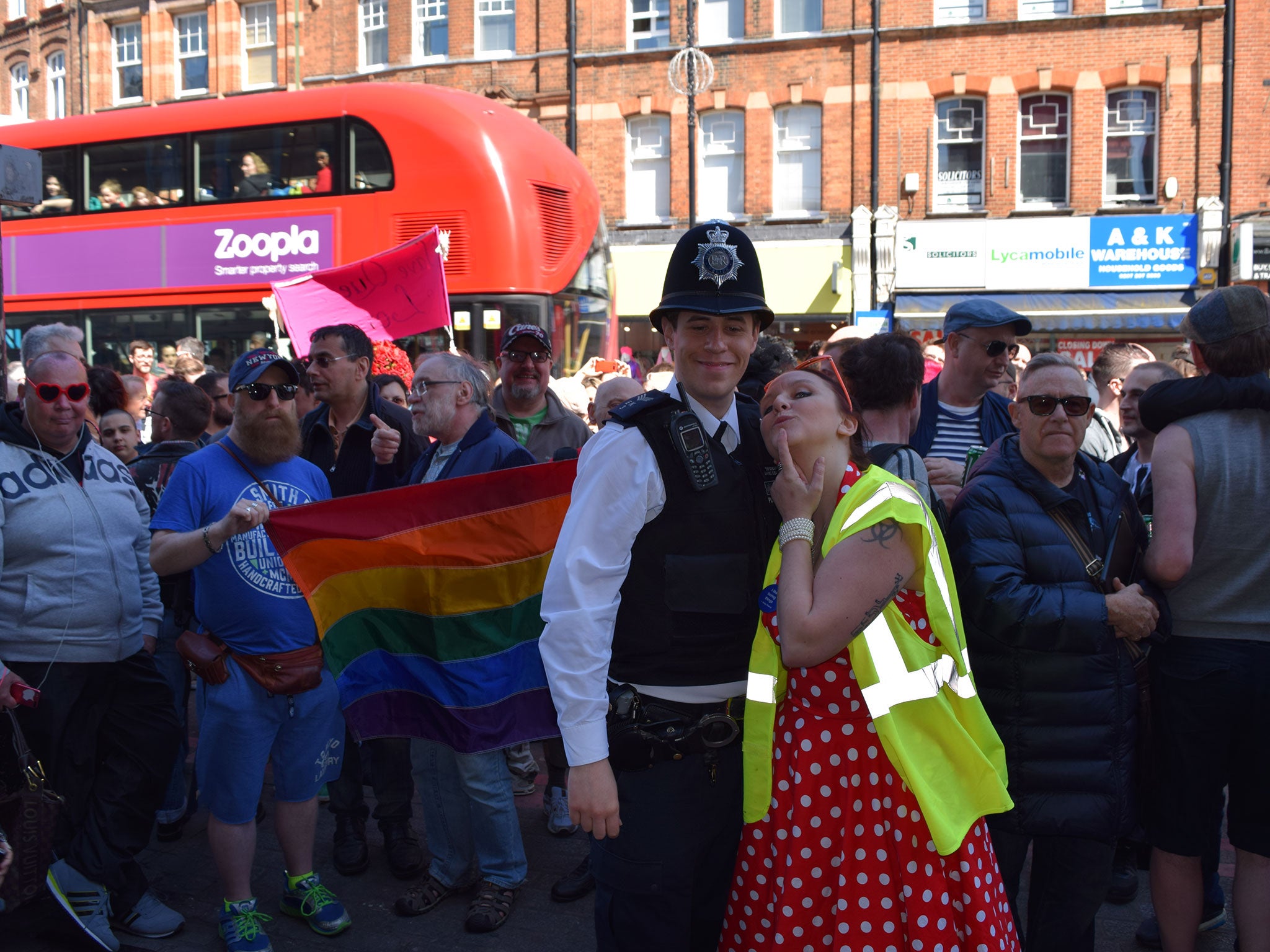
The council also granted the pub Asset of Community Value (ACV) status earlier this month. While this means that any significant redevelopment to the property requires council approval it does not mean The Black Cap has to remain open. Its position as an LGBT venue and cabaret bar is explicitly recognised though, and with the council reluctant to relinquish this the new owners face an uphill battle to use the property for other means.
Common Ground Finance, a property development company, has agreed to buy the venue and is seeking legal advice about its options. A case study on the company’s website claimed it believed there was a strong possibility to “enhance the value of the building” by using the ground floor for retail space and converting the upper floors for flats. It was later taken down.
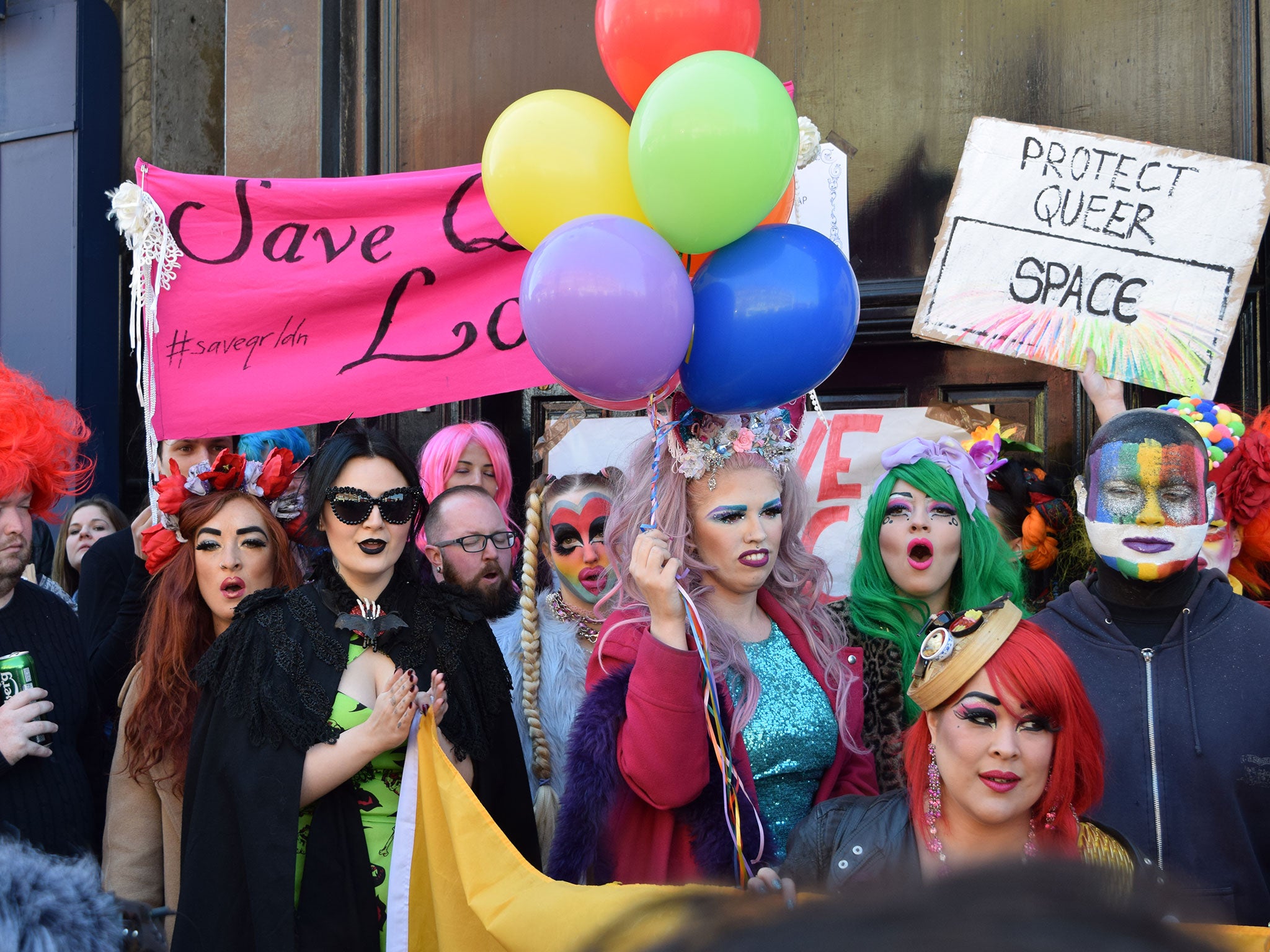
“We are expecting to put a new leisure tenant in, so it will remain as a leisure venue,” says Paul McGill, managing director of Common Ground Finance. “It's [first floor redevelopment] to be discussed. We're in slightly unchartered territory. We're not used to buying a controversial site and equally it's not my decision to close the pub…I'm only a buyer. That aspect is nothing to do with me.”
“We're taking legal advice on what all that [ACV status] means. To be honest it's very unchartered turf for our advisors as well. It's not straightforward. I can't dictate what the lawyers are going to tell us.”
Drag Queen Titti La Camp had performed at The Black Cap since 1992 after winning a talent contest there. She had her own show at least once a month, considered it her performing home and organised many of its biggest nights. While she hadn’t performed there since New Year’s Eve 2013, the venue’s closure has left her with a huge sense of loss.
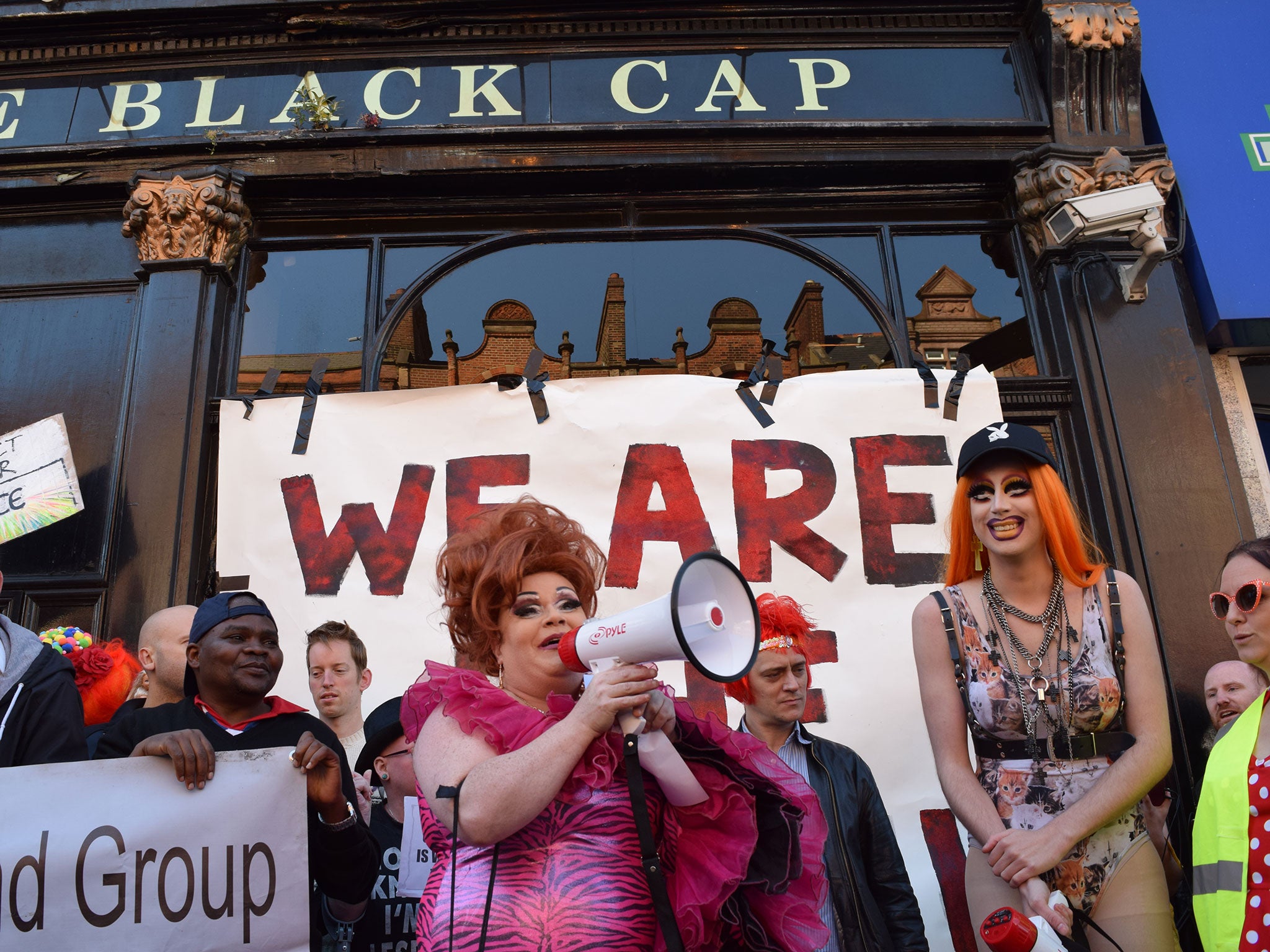
“Besides the Drag career which arose from watching all the wonderful varied performers that graced that stage in the years before, my longest and closest friends were met in there,” she says. “The majority of my best memories arose within that building and my whole adult life was spent growing up in there; from the late eighties when we were still overshadowed with the AIDS crisis to our more liberated times.
“The Black Cap had a new group of performers in there over the last year or so and I thought they were doing well. I never really thought I would be back there as a regular performer. But its closure affects me more on a personal level. Once again our heritage and culture has been steamrollered over in the name of greed.”
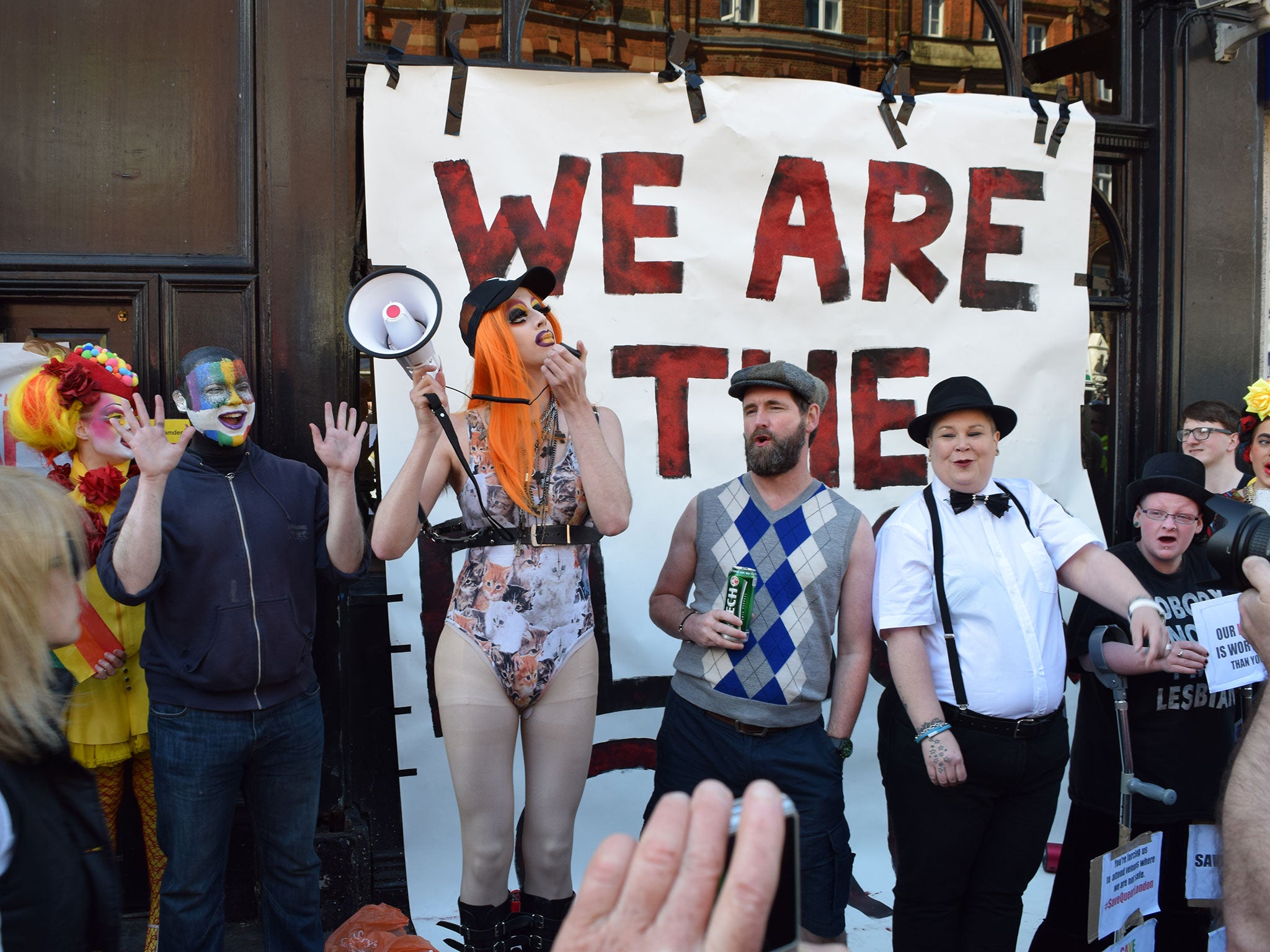
As one of London’s foremost cabaret critics, Ben Walters regularly covered performances at The Black Cap. He was in the audience on the Cap's final night and has helped mobilise the response to its closure.
“The LGBT and drag scenes are the canary in the coalmine,” he says. “For various reasons, not least our society's structural homophobia, the gay community tends not to actually own many of the spaces it uses, so it is relatively easily dispossessed of them. At first it's those without much clout – the gay scene, the cabaret scene, the independent music scene – who get clobbered, then the slightly less marginalised, and so on up.”
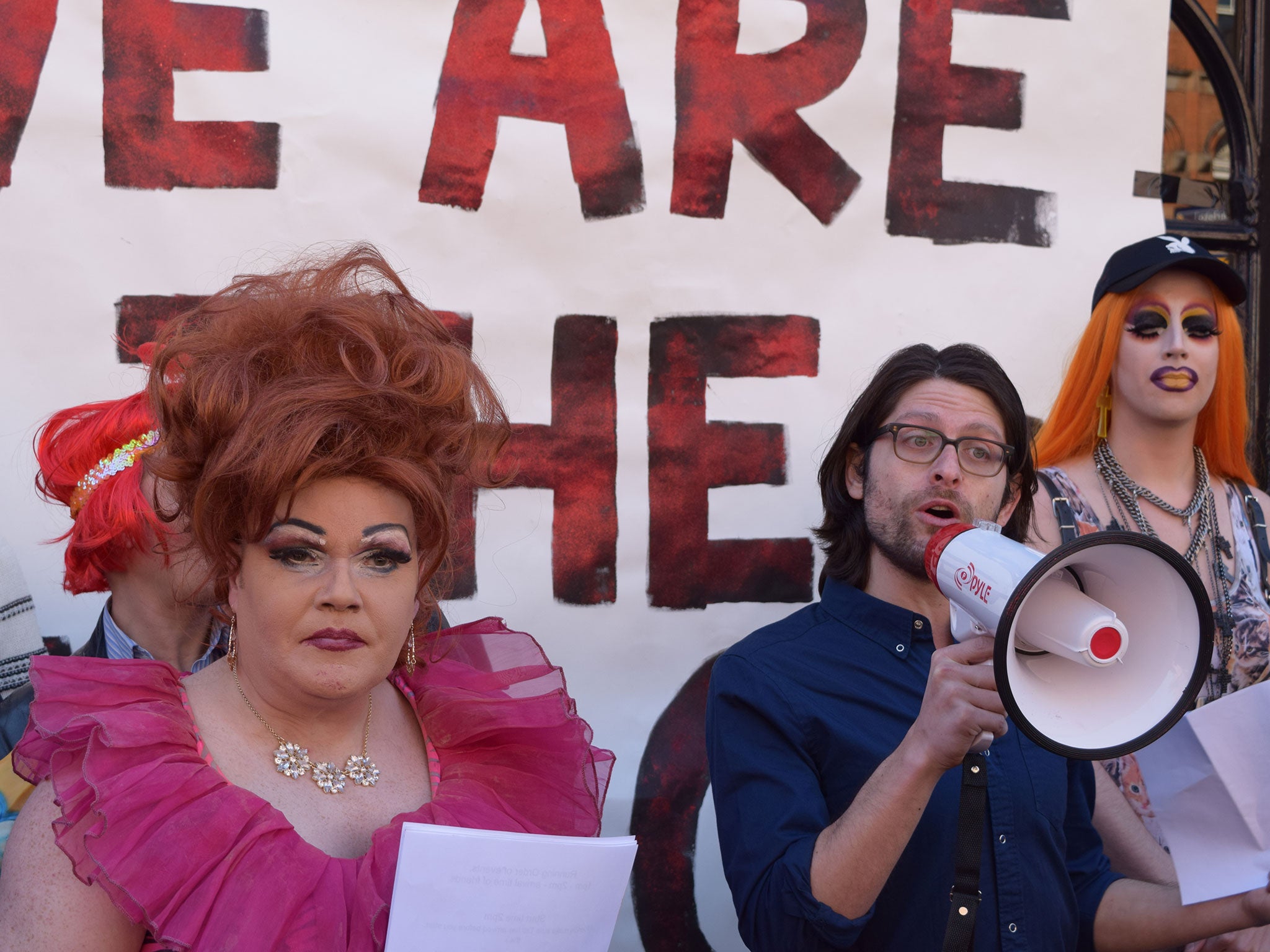
Whether The Black Cap’s doors remain permanently shut or not, for Walters this protest is just the beginning. To stop the steady stream of LGBT venues closing, he wants to see a more mobilised community.
“We have to be proactive and take responsibility,” he says. “We have to use the few imperfect legal instruments available to us, such as asset of community value status, to protect places that mean something to local communities. We need to make our losses visible through outreach work and protest – at the venues themselves and the offices of those killing them.”
“But beyond that we as a society have to recognise that some things are worth more than money. It was, quite simply, the only place where some people felt at home. Now that home has gone.”
Join our commenting forum
Join thought-provoking conversations, follow other Independent readers and see their replies
Comments